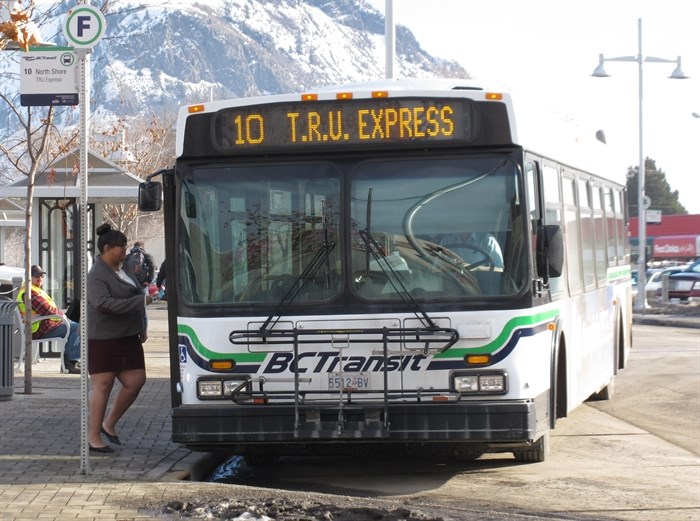
(JENNIFER STAHN / iNFOnews.ca)
April 20, 2015 - 1:59 PM
KAMLOOPS - The challenge of transit service costing the city more money than it makes is no different in Kamloops than it is in any other city in the province and this week city council will discuss a possible fare increase to help offset the cost of the service.
Similar to other urban amenities like, pools, hockey rinks and parks, transit service is not considered a money-making venture. While the city might not expect to make money on transit they do regularly look at ways to minimize the loss.
Over the last 10 years operating costs for Kamloops Transit have increased by 88 per cent to $12.9 million, while revenue has only gone up by 40 per cent.
With $3.15 million of the $3.75 million in revenue collected annually coming from fare products, fares generate the most revenue against operating costs. The additional $600,000 comes from the B.C. Bus Pass program and advertising sales.
The last fare increase was $0.25 in April 2011. The hike saw a slight decrease in ridership, but increased revenue by about $280,000.
A report to council shows the need for a delicate balance to be obtained — the transit system needs more revenue, without sacrificing ridership. Even without fare increases over the last two years ridership has decreased. B.C. Transit has now declared a three year freeze on transit funding as well, meaning transit levels will not be increased during that time. Raising fares without an increase in services will likely not help the trend of declining ridership.
B.C. Transit has recommended the city eliminate age discounts on cash fares, offering these only on pre-paid products instead. It was also noted Kamloops is charging, on average, the lowest fares in its tier while still offering the largest age-based discounts.
City council will explore four options on how to deal with the high costs and potential fare changes at a workshop this week.
Options include keeping the fare the same but removing the age-based discounts on cash fares, increasing all cash fares by $0.25 to $0.50, decreasing fares or even offering free rides. The first two would offer higher revenues but a decrease in ridership while a decrease in fares would offer a drop in revenue but a climb in ridership.
The option of free fares could see an increase of 30 per cent ridership, but this number might be misleading. Some staff research shows the increase in ridership could be as low as ten per cent or as high as 200 per cent. This option would, inevitably, see a 100 per cent decrease in revenues, and the likely need for an increase in service.
There will also be some discussion of offering free zones within the city, as is done in resort areas of Whistler. City administration does not support this idea, however, as they believe collecting fares from adjacent zones could be difficult and there is a potential for overcrowding.
Coun. Donovan Cavers has asked residents, via social media, to field him questions and comments related to transit in time to discuss at the workshop, which will be held at city hall tomorrow, April 21, at 9 a.m.
To contact a reporter for this story, email Dana Reynolds at dreynolds@infonews.ca or call 250-819-6089. To contact an editor, email mjones@infonews.ca or call 250-718-2724.
News from © iNFOnews, 2015